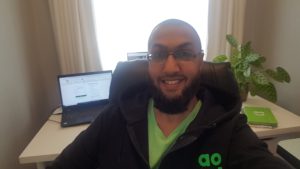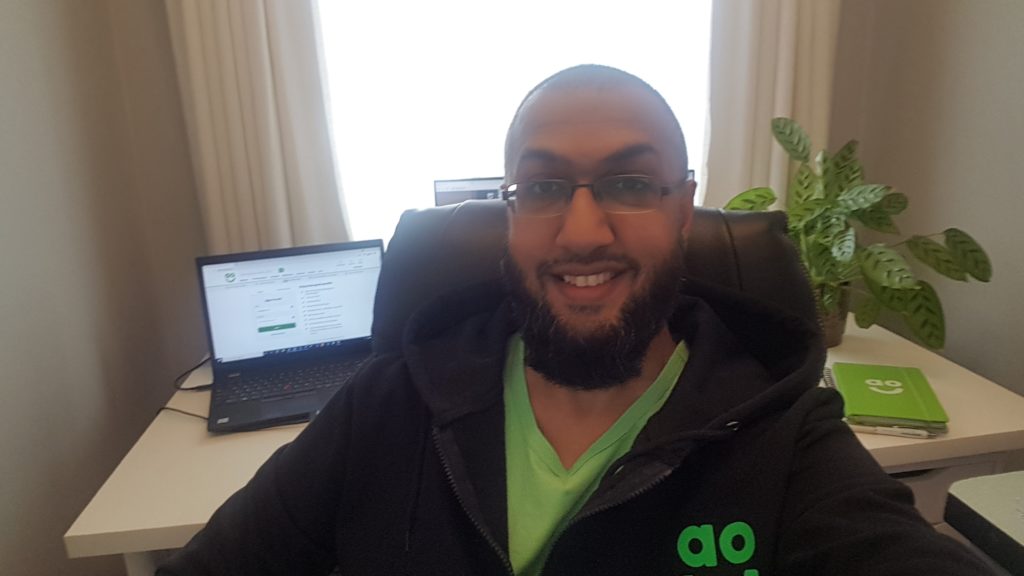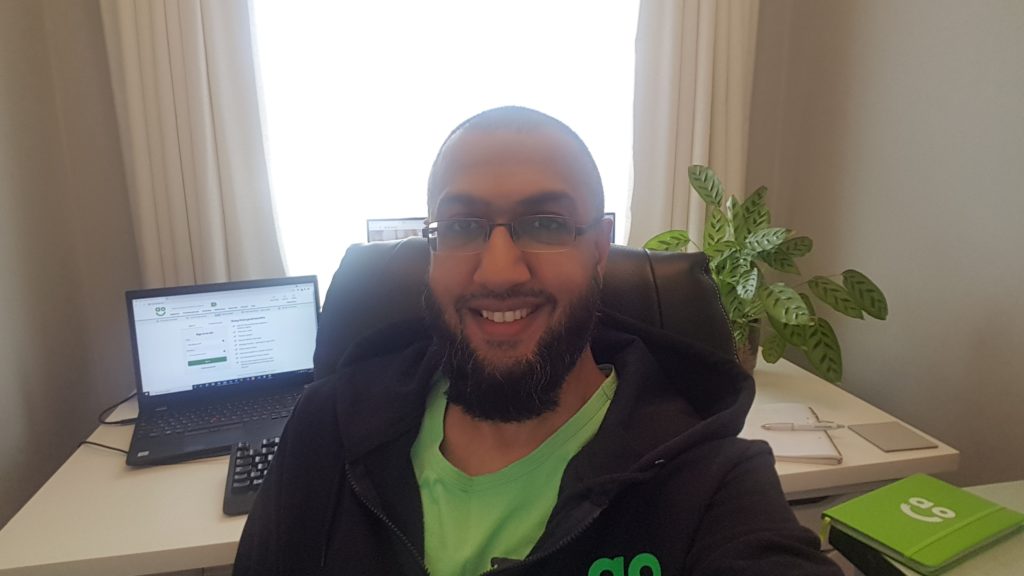Hey there, Jamil here – I’m a Junior Software Developer in the Customer Accounts team, where we look after the ‘My Account’ section of AO.com.
I came into tech from being self-taught; no Computer Science degree, no coding boot camps, zilch tech background. Here’s how I achieved my goal of getting into the tech industry.
After graduating from University, I looked at getting into teaching. My initial placements were in SEN (Special Educational Needs) schools and I was a Teacher’s Assistant in my last SEN primary school for 14 years.
I loved it; every day was different and children come out with the funniest things. I learnt various forms of communication, such as Signing and PECS (Picture Exchange Communication System). We used behaviour management techniques for de-escalation, though this was physically demanding and took more of a toll on me with age.
For this reason, amongst others, I felt it was time for a change. So, I decided to pursue a career where personal growth and development was part and parcel of the industry.
At nearly 40 years of age, plus having no experience in coding/software development whatsoever, I had some doubts and reservations about making a career change. Here comes the first tip…
To achieve the milestones along the way, I had to push aside the constant doubts and negative thoughts creeping in. “But how”, you ask?
By networking at tech talks, speaking to people who have changed careers, and people within software development roles. People who would give me insights into their experience and day-to-day activities entailed, providing reassurances on the anxieties I had.
Reading blogs of those who had made it into this industry from a non-tech and self-taught background helped. I spotted a couple on the AO Tech Blog and I kept referring back to these for inspiration. But, taking the journey yourself is a different story, which brings me on to my second top tip…
Along the way, there were and will be setbacks. Asking myself at times, before landing this role and when I first started, “can I really do this?”, “is this for me?”. I had to see those moments through and keep moving forward.
I am part of a company with a fantastic culture that understands that we, as humans, make mistakes.
But it’s about learning from them that ensures our FAILs (First Attempt In Learning) is an opportunity to grow. AO has provided an atmosphere where I am not blamed for the errors I make within these complex systems but instead provide me with the support and opportunity to learn and progress.
Resilience is not something that can be taught; it comes through experiences – tough experiences!
When I interviewed for my role at AO (my first interview in 15 years), I knew there would be many candidates that would be much more knowledgeable and capable than me. However, that was not my focus; this was an opportunity to show what I can do and who I am.
If I had gone into this interview thinking about the competition, I’d lacked confidence and had low expectations. I was going through the motions in the hope that some company would give me an opportunity.
Instead, I concentrated on what I needed to do to prepare for the interview, what I liked about the thought of working at AO, and how being at AO would be good for my career (after all, this is why I was changing career right?)
I went into that interview focusing on my performance, determined to give it my best shot. I was the competition!
Even as a 40-year-old Junior, the number of new things I’m learning daily is immense. It’s about recognising those learning moments. Like being part of the mob programming sessions, that takes place daily, arranging pair programming sessions with members in and out of the team for the more focused development time and avoiding going it alone.
It’s one of the highlights of working at AO, working collaboratively and avoiding silos. To be persistent, you have to have a purpose, a goal, which brings me to my final tip…
To conquer a goal, you must first have one. When I first embarked on the journey of self-studying, I set myself a long-term goal of securing a tech role.
But to get there, I also set smaller goals of the topics and concepts I needed to cover. As a result, I now have goals set to become a mid-level developer, with a longer-term plan of getting into management.
I’ve not been able to this alone, and I was fortunate enough to have been assigned a pairing buddy and a mentor when I first started. It’s helped with having someone to talk to, seek guidance and learn from their experiences and challenges.
One of the things we can be sure of in life is that we won’t get something if we don’t aim.



